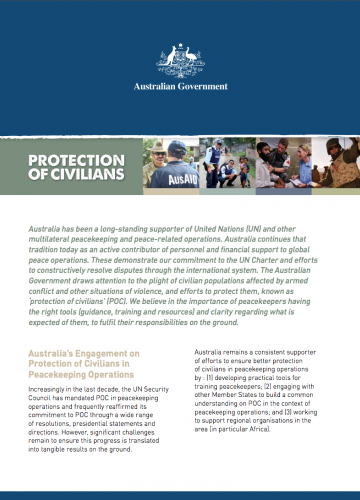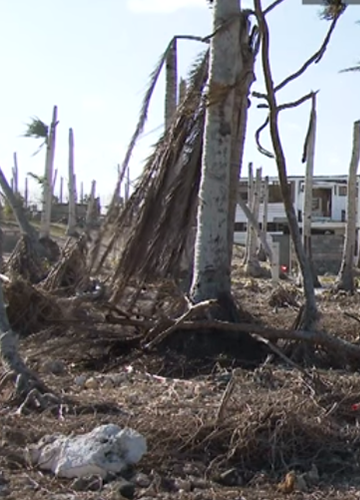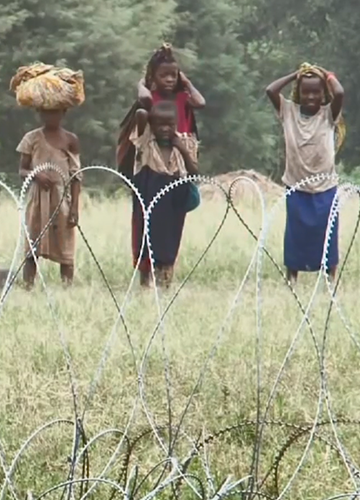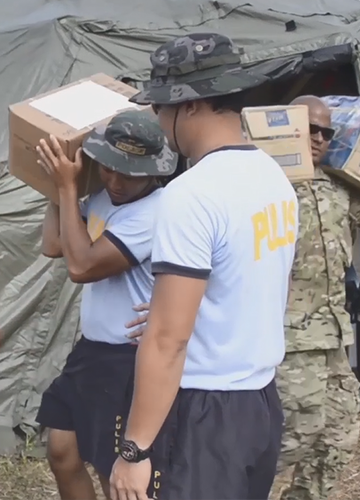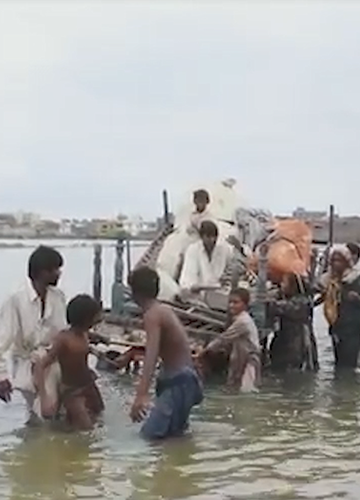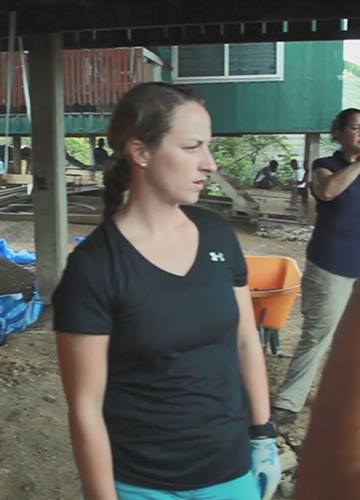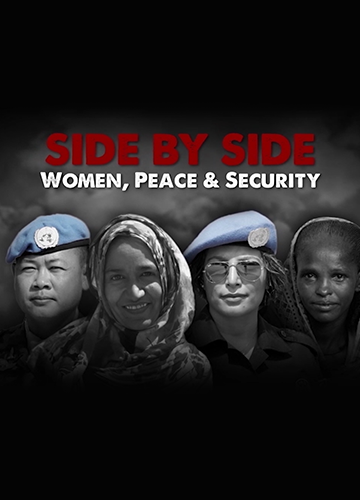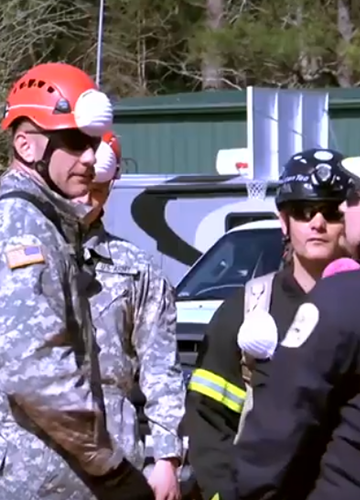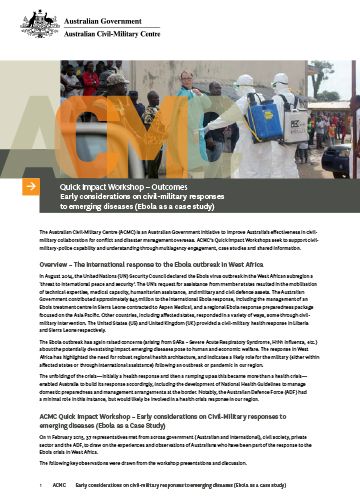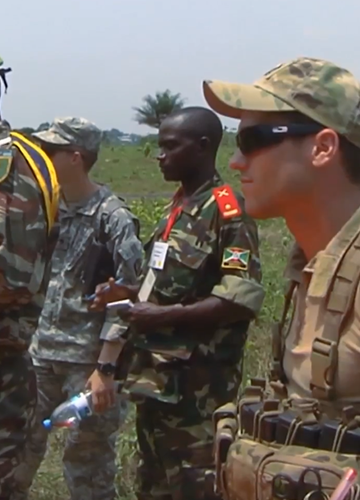Australia's Engagement on Protection of Civilians in Peacekeeping Operations presented in a 2-page fact sheet.
The ACMC produces a number of videos and publications that are available online to view or as downloadable resources. Many of our publications are also available in hard-copy and may be ordered via a secure online request form. We encourage you to share our resources widely.
Civil-Military-Police interaction is the key to improving international response efforts to overseas disasters and conflicts.
Explore the complex challenges of disasters occurring in conflict zones and areas where peacekeeping missions are operating.
Explore the complementary roles, responsibilities and capabilities of the military and police in responding to international crises.
Discuss the opportunity and necessity of engaging the private sector in international crisis response efforts.
The experiences, contributions and impact of female Australian civilian, police and military personnel deployed on peace and security operations between 1988 and 2014
"Side by Side - Women, Peace and Security" explores how the international community has and can meet its commitments on women, peace and security.
What can leaders do to proactively engage other stakeholders and better prepare for international response efforts?
Quick Impact Workshop – Outcomes Early considerations on civil-military responses to emerging diseases (Ebola as a case study)
In August 2014, the United Nations (UN) Security Council declared the Ebola virus outbreak in the West African subregion a ‘threat to international peace and security’. The UN’s request for assistance from member states resulted in the mobilisation of technical expertise, medical capacity, humanitarian assistance, and military and civil defence assets.
What does the future of civil-military-police response effort look like?


